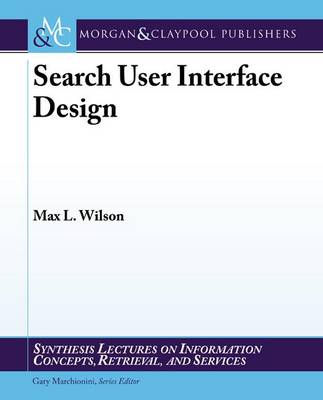Synthesis Lectures on Information Concepts, Retrieval, and Services
1 total work
Search User Interfaces (SUIs) represent the gateway between people who have a task to complete, and the repositories of information and data stored around the world. Not surprisingly, therefore, there are many communities who have a vested interest in the way SUIs are designed. There are people who study how humans search for information, and people who study how humans use computers. There are people who study good user interface design, and people who design aesthetically pleasing user interfaces. There are also people who curate and manage valuable information resources, and people who design effective algorithms to retrieve results from them. While it would be easy for one community to reject another for their limited ability to design a good SUI, the truth is that they all can, and they all have made valuable contributions. Fundamentally, therefore, we must accept that designing a great SUI means leveraging the knowledge and skills from all of these communities. The aim of this book is to at least acknowledge, if not integrate, all of these perspectives to bring the reader into a multidisciplinary mindset for how we should think about SUI design. Further, this book aims to provide the reader with a framework for thinking about how different innovations each contribute to the overall design of a SUI. With this framework and a multidisciplinary perspective in hand, the book then continues by reviewing: early, successful, established, and experimental concepts for SUI design. The book then concludes by discussing how we can analyse and evaluate the ongoing developments in SUI design, as this multidisciplinary area of research moves forwards. Finally, in reviewing these many SUIs and SUI features, the book finishes by extracting a series of 20 SUI design recommendations that are listed in the conclusions.
